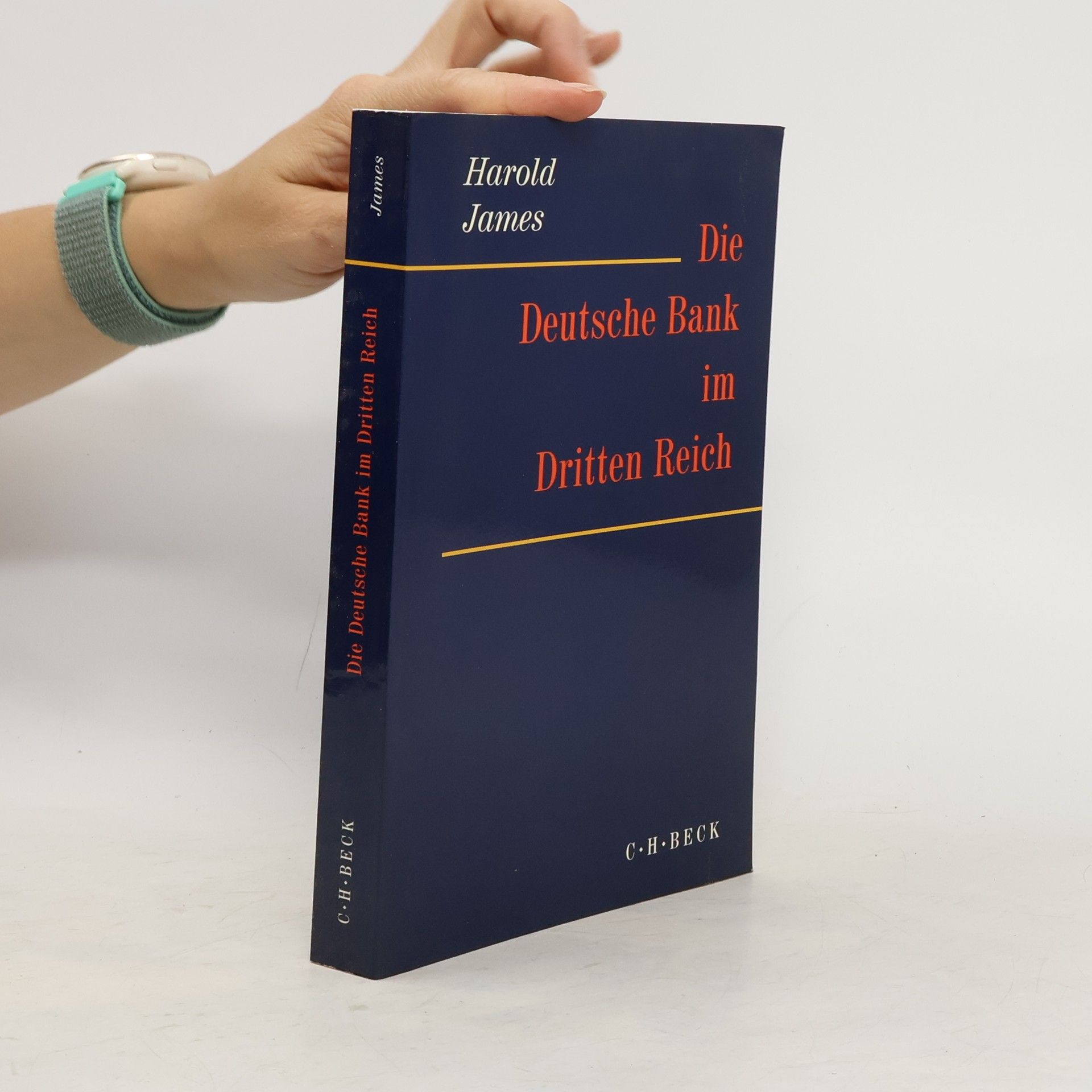When the Wall Came Down provides a wide-ranging compendium of responses in Germany and other countries to the events of 1989-90, and includes essays by Henry Kissinger, Vaclav Havel, Ralf Dahrendorf and Timothy Garton Ash.
Harold James Boeken
Harold James is een professor in geschiedenis en internationale betrekkingen, gespecialiseerd in Europese studies. Zijn werk onderzoekt cruciale historische gebeurtenissen en hun impact op hedendaags Europa. Hij duikt in de politieke en economische krachten die het continent hebben gevormd. Zijn expertise ligt in een diep begrip van Europese integratie en nationalisme.






A timely call for recovering the true meanings of the nineteenth-century terms that are hobbling current political debates
"Following the collapse of communism in the East, Europe again faces the threat of a unified, powerful, nationalistic Germany. In his brilliant and provocative study of the German search for self-understanding, Harold James looks at Germany within the international order, offering an entirely new explanation for the instability and volatility of the Germans' perceptions of themselves, and the role of their nation."--Jacket
Seven Crashes
- 376bladzijden
- 14 uur lezen
A leading economic historian presents a new history of financial crises, showing how some led to greater globalization while others kept nations apart
Financial Innovation, Regulation and Crises in History
- 192bladzijden
- 7 uur lezen
Exploring the evolution of financial institutions and markets, this volume features insights from prominent figures like Niall Ferguson and Adair Turner. It examines historical pressures faced by these entities and the subsequent regulatory responses, providing a comprehensive analysis of the interactions between finance and regulation throughout history.
Geschichte Europas im 20. Jahrhundert
- 576bladzijden
- 21 uur lezen
Statt 29,90 € jetzt nur noch 9,95 € Harold James bietet einen prägnanten Überblick über die europäische Geschichte des 20. Jahrhunderts, beleuchtet sowohl politische als auch wirtschaftliche, soziale und gesellschaftliche Entwicklungen. Im Mittelpunkt steht die Frage, wie Demokratie stabilisiert werden kann. Die Darstellung umfasst alle wichtigen Entwicklungen seit dem Ersten Weltkrieg und ist zugleich ein interpretierender Essay. James beschreibt den Fall Europas in der ersten Hälfte des Jahrhunderts und den Wiederaufstieg nach 1945, wobei er die Unterschiede und Gemeinsamkeiten der Erfahrungen in verschiedenen Regionen hinterfragt. Sein fesselndes Werk zeigt, wie Europa nach dem Ersten Weltkrieg das Scheitern liberaler Demokratie, Marktwirtschaft und internationaler Ordnung erlebte, während Diktaturen und nationaler Egoismus an Bedeutung gewannen. Mussolinis Italien, Hitlers Deutschland und Stalins Russland wurden in den 1930er Jahren als Zukunftsmodelle betrachtet. Der Zweite Weltkrieg und der Holocaust markierten den düsteren Höhepunkt der Selbstzerstörung Europas. James widmet den Jahrzehnten nach 1945 ausführliche Aufmerksamkeit, in denen Demokratie, Marktwirtschaft und europäisches Selbstverständnis neu definiert werden mussten. Die Erzählung reicht vom Kalten Krieg bis zur Gegenwart, in der Europa die Herausforderungen der globalen Integration und seine Rolle in der Weltpolitik meistern muss.
Deutsche Identität 1770 - 1990
- 310bladzijden
- 11 uur lezen
Die Deutsche Bank im Dritten Reich
- 267bladzijden
- 10 uur lezen
Die Rolle der Deutschen Bank im "Dritten Reich" wird detailliert untersucht, insbesondere ihre Anpassung an das nationalsozialistische Regime. Harold James analysiert die wirtschaftlichen Spielräume der Bank in einem von Antisemitismus und Profitstreben dominierten Umfeld. Zudem werden die einflussreichen Persönlichkeiten der Bank, wie Emil Georg Stauß und Hermann J. Abs, und ihre oft ambivalente Rolle während dieser Zeit beleuchtet. Das Buch bietet somit einen tiefen Einblick in die Verstrickungen zwischen Finanzwesen und politischem Extremismus.
Der Krieg der Worte. 16 Schlüsselbegriffe im Kampf um die Weltordnung
- 480bladzijden
- 17 uur lezen
Harold James beleuchtet in seinem Buch die Ursprünge zentraler politischer Begriffe wie Nationalismus, Sozialismus und Kapitalismus. Er zeigt, wie deren problematische Definitionen zu Missverständnissen und Polarisierung führen. Historisches Wissen über diese Begriffe ist entscheidend, um produktive politische Debatten zu fördern.
Schockmomente
Eine Weltgeschichte von Inflation und Globalisierung 1850 bis heute
- 544bladzijden
- 20 uur lezen
Harold James' neues Buch ist eine Geschichte der modernen Weltwirtschaft, die die großen wirtschaftlichen (und im Gefolge politischen) Krisen seit der Mitte des 19. Jahrhunderts bis heute miteinander in Beziehung setzt. Von den Hungersnöten ab 1840 über die Hyperinflation 1923, die Ölkrise der 1970er-Jahre, die Finanzkrise 2008/09 bis zur Coronakrise lässt sich, so James, beobachten, wie Versorgungsengpässe und steigende Preise politische Systeme wie Unternehmen zum Besseren verändern oder hinwegfegen. Daraus ergeben sich Mechanismen, die all diese Krisen prägen und in Zukunft zur Überwindung neuer Rückschläge beitragen können. So entsteht eine fulminante Darstellung der Beziehungen von modernem Staat und Wirtschaft und den sich wandelnden Vorstellungen ihres Miteinanders. Und eine Einbettung der aufgrund von Corona zu beobachtenden globalen Umwälzungen in eine sehr viel längere Geschichte der Globalisierung.


